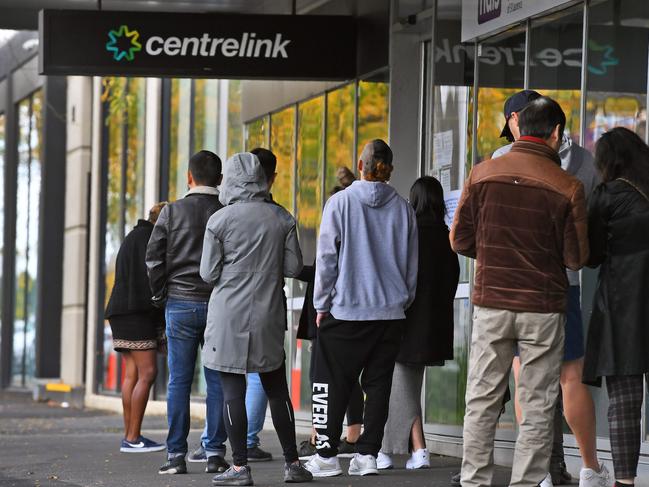Talking Point: Payroll tax punishes Tasmanian business for hiring staff
Double taxation condemns our young people to unemployment, writes Julia Kokic

Opinion
Don't miss out on the headlines from Opinion. Followed categories will be added to My News.
Tax reform is not a subject that makes you dinner party invitee of choice. But if we don’t have an adult conversation about payroll tax soon, we could condemn an entire generation of Tasmanian youth to joblessness. Businesses are enjoying a reprieve from payroll tax as a result of COVID-19. But as we enter the new financial year, the Tasmanian government appears to have no plans to extend the tax relief.
States levy payroll taxes on businesses with payrolls over the designated threshold. In Tasmania, employers with payrolls amounting to more than $1.25 million must pay 4 per cent of gross wages on top of each employee’s salary. For employers with payrolls over $2 million, payroll becomes 6.1 per cent.
It is a form of double taxation because the same gross salary is subject to income tax and payroll tax. For a 16-21-year-old earning a gross salary of $50,166, the average salary for that age group in Hobart, a small business must pay more than $2000 to the government. That adds up to 2½ weeks of pay. A medium or large sized business must cough up $3060, or nearly a month’s pay, for the same employee.
For every 16 people that business hires, they could have hired a 17th worker with the money they spent on the payroll tax. The government is punishing businesses for hiring people.
Unemployment in Tasmania has ballooned to 6.4 per cent, yet we continue to slap businesses with a tax on jobs. Youth unemployment in Australia is steadily double the unemployment rate at any given time and Tasmania has one of the worst levels of youth unemployment in Australia. If there was ever a time for our government to deliver on their weathered catchcry, “jobs and growth”, that time is now.
It is nothing short of daunting being a young person looking for a job during a recession. We boast less experience and qualifications by virtue of our age.
In Tasmania it is disproportionately difficult for young people seeking employment, because of low completion rates of Year 12, rising property prices, and low participation in tertiary education. Granted, Tasmania has a one-year payroll tax rebate for young employees, but it’s just not enough.
Businesses will still have to fork out payroll tax the next year and every year after that. A true fair go for young Australians would mean getting rid of the tax on jobs entirely.
Young people often occupy industries such as hospitality and retail — some of the hardest hit roles during the COVID-19 crisis. As pubs and restaurants go under the youth have ever fewer job opportunities. Young people need leaders committed to giving a hand up and not a hand out.
From 2018-2019, the Tasmanian government collected an obscene 29 per cent of its revenue from the tax on jobs. That’s almost a third of the state government’s revenue generated by taxing businesses for hiring people.
Less harmful forms of taxation should replace the revenue accrued by payroll tax such as NSW and Victoria are discussing.
Tasmanian Premier Peter Gutwein has supported reductions to payroll tax during his time in parliament. As Will Hodgman’s treasurer he oversaw the reduction of payroll tax rates in Tasmania. In his own words, “the Liberal Party is about lower taxes”.
Before the pandemic, the federal government resisted reform to federal financial relations with the states, but people are becoming dissatisfied with the status quo, spearheaded by NSW Treasurer Dominic Perrottet.
Prime Minister Scott Morrison is riding a huge wave of support. With Mr Morrison enjoying a 68 per cent approval rating, the federal government has no excuse not to tackle the big issues head on.
The Tasmanian government acknowledged waiving payroll tax created jobs when policymakers implemented a youth employment payroll tax rebate in response to COVID-19.
The prosperity of Tasmania depends upon the willingness of our state and federal governments to co-operate in scrapping inefficient taxes. When bones break, they repair even stronger. Our economy is broken. But if the government doesn’t shirk from the hard reforms, we will not only repair but thrive. The devastation inflicted by COVID-19 provides a golden opportunity to enact serious tax reform to empower Australian youth. The question remaining is, will our leaders be brave enough to take it?
Julia Kokic is a policy researcher at the Australian Taxpayers’ Alliance.


